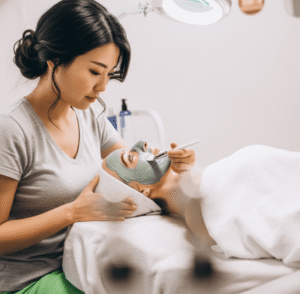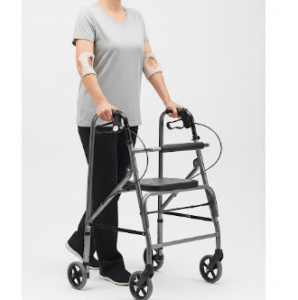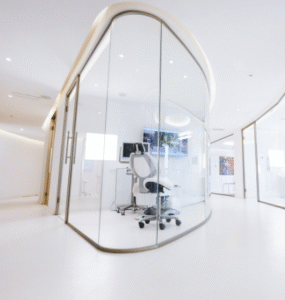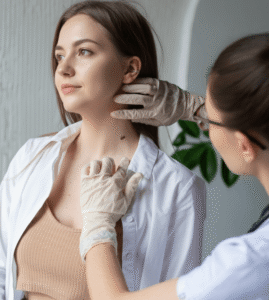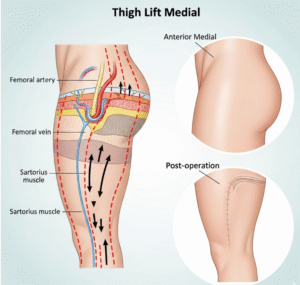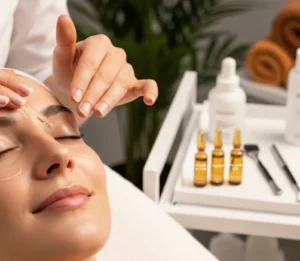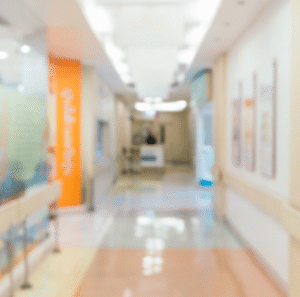What it is
Skin whitening program in Korea is a structured dermatology and aesthetic treatment plan designed to achieve brighter, more even-toned skin by addressing pigmentation, dullness, sun damage, and uneven complexion.
Unlike single-session treatments, a whitening program is multi-step and tailored, combining topical care, in-clinic procedures, and oral/IV supplements. The focus is not only on “whitening,” but on skin clarity, radiance, and luminosity, reflecting Korea’s beauty standards of clear and glowing skin.
→ Programs are widely offered in dermatology clinics, medical spas, and cosmetic centers across Seoul, Busan, and other cities.
• Treatments target melanin overproduction, oxidative stress, and skin barrier health.
• Programs may last from a few weeks to several months, depending on goals.
Why it’s done
Patients in Korea pursue skin whitening programs for several reasons:
→ Hyperpigmentation → Treating sunspots, melasma, or acne scars.
→ Uneven skin tone → Brightening dull or patchy complexion.
→ Anti-aging → Reducing pigmentation linked with aging.
→ Post-inflammatory issues → Fading marks from acne or skin conditions.
→ Cultural beauty ideals → In Korea, clear and luminous skin is associated with youth and vitality.
Alternatives
Instead of a full whitening program, patients sometimes choose:
• Topical creams only → Hydroquinone, arbutin, or niacinamide-based creams for mild brightening.
• Cosmetic whitening products → Over-the-counter serums and sheet masks.
• Lifestyle changes → Sun protection and antioxidant-rich diets.
• Single treatments → One-time laser or peel sessions.
→ While these can help, comprehensive programs in Korea combine multiple methods for longer-lasting, more natural-looking results.
Preparation
Before starting a skin whitening program in Korea, patients undergo:
- Dermatology consultation → To assess skin type, pigmentation issues, and treatment goals.
- Skin evaluation → Includes analysis of melanin levels, hydration, and UV damage.
- Pre-care routine → Gentle skincare to strengthen the barrier before treatments.
- Sun protection → Daily SPF is mandatory before and throughout the program.
- Lifestyle guidance → Avoid tanning, alcohol overuse, and stress, which worsen pigmentation.
How it’s done
Skin whitening programs in Korea typically combine in-clinic and at-home steps:
- Topical treatments
- Prescription creams with arbutin, tranexamic acid, kojic acid, or hydroquinone.
- K-beauty skincare products with niacinamide, vitamin C, and centella asiatica.
- Laser therapies
- Pico laser → Breaks down melanin clusters.
- Q-switched Nd:YAG → Reduces pigmentation and freckles.
- Fraxel laser → Stimulates skin turnover and collagen.
- Chemical peels
- Mild glycolic acid, lactic acid, or TCA peels to exfoliate pigmented layers.
- Whitening injections or IV drips
- Vitamin C, glutathione, and antioxidants delivered intravenously.
- Popular in Korea for systemic brightening and anti-aging benefits.
- Oral supplements
- Glutathione, vitamin C, and collagen capsules may be prescribed.
- Maintenance skincare
- Gentle, hydrating regimens with sunblock, whitening serums, and sheet masks.
→ Programs typically last 4–12 weeks, with sessions scheduled every 1–2 weeks.
Recovery
Recovery from whitening programs depends on treatment type:
• Laser and peel sessions → Mild redness, dryness, or peeling for 2–3 days.
• Topicals → Possible irritation at first, but usually well tolerated.
• IV drips → No downtime, immediate hydration boost.
→ With consistency, results are visible in 3–6 weeks, and skin continues to improve over time.
Complication
While generally safe in Korea, possible risks include:
- Skin irritation → From strong topicals or peels.
- Temporary hyperpigmentation → If aftercare (sun protection) is neglected.
- Uneven results → If the program isn’t customized properly.
- Overuse risks → Excessive hydroquinone or glutathione use may cause long-term side effects if unsupervised.
→ Korean clinics minimize risks with dermatologist oversight and personalized adjustments.
Treatment option in Korea
Korea is globally recognized for skin whitening and brightening programs:
→ Dermatology clinics in Seoul and Busan → Provide customized whitening packages using lasers, peels, and IV drips.
→ Integration of K-beauty → Programs often include cosmeceutical-grade serums and sheet masks with niacinamide, vitamin C, and fermented extracts.
• Cutting-edge technology → Pico lasers, fractional devices, and glutathione IV systems are widely used.
• Combination therapy → Korean doctors prefer layering multiple mild treatments instead of aggressive single methods for natural results.
• Medical tourism → International patients frequently visit Korea for whitening programs, valuing the country’s safe, innovative, and aesthetic-driven approach.
→ With its holistic blend of medical dermatology, advanced devices, and skincare expertise, Korea offers some of the most effective and refined skin whitening programs worldwide, achieving brighter, clearer, and healthier skin.


